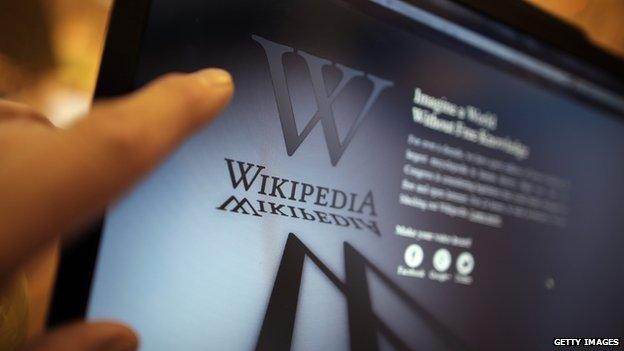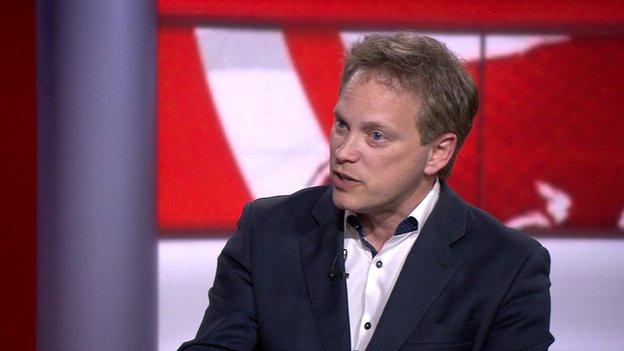Wikipedia editing rules in a nutshell
- Published

The English-language version of Wikipedia has about 25 million users
In the wake of a Wikipedia row between the Guardian and Conservative Party chairman Grant Shapps, what are the editorial rules governing this massively popular online encyclopaedia?
What is Wikipedia again?
Don't pretend you don't know. It's the not-for-profit multilingual online encyclopaedia co-founded by Jimmy Wales and supported by the Wikimedia Foundation. The English-language version of the Wiki contains nearly five million articles and has an estimated 25 million users.
Who writes the entries?
Anyone can - it's open to all and can be modified and edited by anyone. However, Wikipedia's administrators protect some pages from direct editing if they believe they are regularly subjected to "vandalism" - the addition of abusive language or falsehoods.
Who checks for quality and accuracy?
Wikipedia is self-policing and relies on its community of volunteer editors to improve the quality and accuracy of the pages over time. It's the "wisdom of crowds" principle in action. Writers are encouraged to back up factual statements with verifiable references and authoritative sources as often as possible.
How easy is it to make up stuff about people?
Wikipedia has rules - lots of rules. One obvious one is not being dishonest. Another is avoiding opinion and sticking to verifiable facts. But it is possible to set up a user account with a pseudonymous username to allow you to edit anonymously. However, using anonymous accounts for blatant misrepresentation and puffery - known as sock puppetry - is often spotted and the offending content challenged or removed by other editors.
Don't people and companies use Wikipedia for self-promotion?
Blatant self-promotion is frowned upon by the community and viewed as a conflict of interest. Anyway, as you don't control the page, less flattering information may soon be added by others. But examples of Wikispam, as it's sometimes called, are "speedily deleted" according to the website.
How do I become an editor?
You don't need to log in to the site to read or edit articles, but setting up an account and registering allows you to create your own pages, upload content and edit without your internet protocol (IP) address - the number that identifies a mobile phone or computer on a network - being visible to the public.
What happens if you get caught misbehaving?
The Wiki administrators, who number around 1,300, can usually identify the IP address of someone editing articles and this can be tracked to a rough location, enabling them to spot suspicious patterns of behaviour. Offending accounts can be suspended, without individuals necessarily being identified.
But can't you just set up a new account?
Er... yes. If the IP address is different - you use a different computer or phone than the one you used before and, if you're being really sneaky, move location to do your editing - there's no reason why you can't set up another anonymous account and carry on as before. And there are plenty of services allowing internet users to hide their IP addresses anyway, for example, by using an encrypted virtual private network.
So how does Wikipedia stop repeat "sock puppet" offenders?
Someone going to great lengths to hide their IP address is sometimes enough to arouse suspicion among the site's administrators. And patterns of behaviour - from the adoption of similar usernames to a focus on specific topics and types of edit - can reveal a lot about motivations and personality. Multiple accounts can often be tracked to one individual - we're never as anonymous as we like to believe. But any open and collaborative system will always be open to abuse.
- Published22 April 2015
